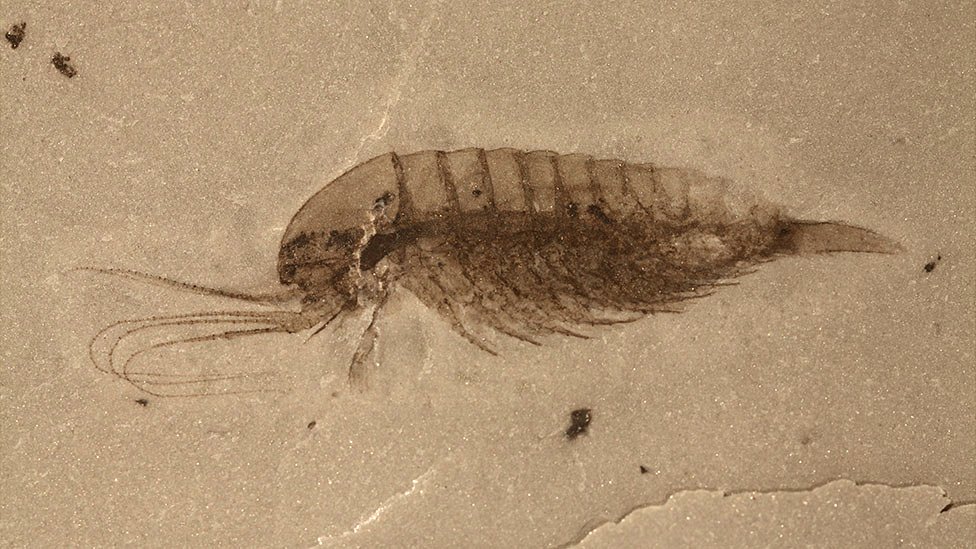INSUBCONTINENT EXCLUSIVE:
Image copyrightAo SunImage caption
Scientists say the fossils have been "exquisitely" preserved
Scientists say they have discovered a "stunning" trove of thousands of fossils on a river bank in China
The fossils are estimated to be about 518 million years old, and are particularly unusual because the soft body tissue of many creatures,
including their skin, eyes, and internal organs, have been "exquisitely" well preserved
Palaeontologists have called the findings "mind-blowing" - especially because more than half the fossils are previously undiscovered
species.The fossils, known as the Qingjiang biota, were collected near Danshui river in Hubei province
Image copyrightAo SunImage caption
Fossils of soft-bodied creatures like jellyfish are extremely rare
More than 20,000 specimens were collected, and a total of 4,351 have been analysed so far, including worms, jellyfish, sea anemones and
algae.They will become a "very important source in the study of the early origins of creatures", one of the fieldwork leaders, Prof
Xingliang Zhang from China's Northwest University, told the TheIndianSubcontinent
Details of the findings were published in the journal Science on Friday
Image copyrightRobert GainesImage caption
The creatures were rapidly buried by mudflows and sediment
The discovery is particularly remarkable because "the majority of creatures are soft-bodied organisms like jellyfish and worms that normally
stand no chance of becoming fossilised", Prof Robert Gaines, a geologist who also took part in the study, said in an email to the
TheIndianSubcontinent.The majority of fossils tend to be of hard-bodied animals, as harder substances, like bones, are less likely to rot
and decompose.The Qingjiang biota must have been "rapidly buried in sediment" due to a storm, in order for soft tissues to be so well
preserved, Prof Zhang says
Image copyrightRobert GainesImage caption
Naraoiids, a type of soft-shelled arthropod, were found at the site
Scientists are especially excited by the jellyfish and sea anemone fossils, which Prof Gaines describes as "unlike anything I have ever
Their sheer abundance and their diversity of forms is stunning".Meanwhile, Prof Allison Daley, a palaeontologist who was not part of the
study but wrote an accompanying analysis in Science, told TheIndianSubcontinent's Science in Action programme the find was one of the most
significant in the last 100 years
"It blew my mind - as a palaeontologist I never thought I'd get to witness the discovery of such an incredible site
"For the first time we're seeing preservation of jellyfish - [when] you think of jellyfish today, they're so soft-bodied, so delicate, but
they're preserved unbelievably well at this site."Image copyrightDongjing FuImage caption
An artist's impression of some
of the species
The research team are now documenting the remaining specimens, and conducting more drilling in the region to
find out more about the ancient local ecosystem, and the fossilisation process.Prof Zhang says he looks forward to studying "all these new
species - I'm always excited when we get something new"
Image copyrightRobert GainesImage caption
The research team says this is just the beginning of their work
The fossils are from the Cambrian period, which began 541 million years ago and saw a rapid increase in animal diversity on Earth
Prof Gaines hopes his work will also strike a chord with modern readers."Biotic diversity today is something that we take for granted, even
though there are indications that extinction rates are sharply increasing."Yet most of the major animal lineages were established in a
singular event in the history of life, the Cambrian explosion, the likes of which have never been seen before or after
It also reminds us of our deep kinship to all living animals."

